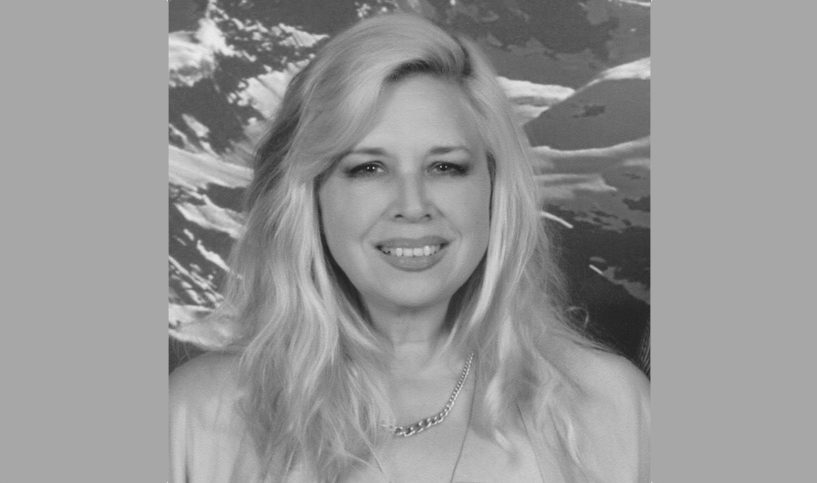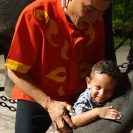Dana Winner, an American living in Kuwait, is a testament to how citizenship has nothing to do with transforming a place. Her activism is shaping the evolution of our country. There is no way you will not be inspired to do something for your community after hearing her story.
Dana, tell us about Access Jahra, and how you catapulted this initiative.
I became aware of the U.S. State Dept. English Access Microscholarship program when AMIDEAST conducted the program in Kuwait. It provides English language and multicultural education for underprivileged students all around the world. In Kuwait, it is only available to Kuwaitis. More than 10 years ago, I was able to persuade the leaders of that program to accept my stateless stepdaughter into the program as a Kuwaiti. Since then, other Kuwaiti Stateless students were admitted to the program and also into the Youth Exchange Scholarship (YES). In the past two years, I began talking up the idea of putting the Access program closer to the target student population—i.e. in Jahra. Dr. Zennia Paganini, U.S. Embassy Cultural Attaché championed the idea and we were able to make it happen last December.
There are many causes in each society that need to be addressed in order to create a wholesome, inclusive society. How can we solve the societal crisis of statelessness?
It is very simple. Kuwait citizenship should be made a civil right that can be taken to court so that people can plead their case. If people think about the implications of the roots of statelessness in Kuwait they will realize the cause is that citizenship is a “sovereign issue” provided by a medieval concept of “grace and favor” rather than a civil right.
So you’re a bit Cali, a bit Kuwaiti. Has living here dissolved the stereotypes for you or enhanced them?
The human brain functions by categorizing. So, yes, I have stereotypes, archetypes, icons, role models and so on. I have lived in Washington D.C., traveled extensively as a professional singer/recording artist, lived and studied in Germany, then lived and worked in London, Saudi Arabia, Kuwait, Emirates, and Iraq. So, the cultural disruption began when I was 16. All of these cultures have disrupted my mental categorizations of people. Perhaps the most important shuffling of archetypes inspired by living in the Middle East has been to categorize The People of The Book as a homogenous group with far more in common than is usually recognized by most people. In general, my categorization of people tends to revolve around values rather than ethnicity, especially in regards to spiritual perspective and integrity.
Faith is an integral aspect of your being. How does it propel your activism?
I see faith as a function. In other words, faith is action/activism. It is often confused with hope (an emotion) and trust (a rational decision) and belief (a mental choice). Faith is based on purpose. Purpose grows out of who a person is, who a person was created to be. I experience faith as operating mostly subconsciously and it is driven by a purpose that arises from the essence of who a person is. Who I am, in at least one aspect, is someone who loves a wonderful man who is stateless. So I would say that love propels my activism while faith is the function through which that love is active. My love for my wonderful husband, who is stateless despite being a second-generation Kuwait police officer and having been in the Kuwait resistance against the Iraq occupation, and my compassion for his suffering has generated compassion for others who are stateless. Also, my dad taught me from the age of three to be a champion for civil rights. He was very courageous as an anti-racism activist in Washington, D.C. So, it is a habit to stand against injustice.
And, finally, you are also a tech wizard who tours local institutions to teach them about cyber safety. You meet people from all walks of life. What bridges people together?
I want to believe that “something “good” is bridging people together. Certainly, we have done some great things with information technology and can do even more good with IT to bring people together and build a more sustainable culture. Here in the Middle East, our use of IT is still quite far from an optimal benefit to society. I am not currently seeing a movement towards building bridges between people. The current zeitgeist appears to be a phase of regression after about 70 years of breaking down barriers to build global peace. The most optimistic thought that I have at this time is that human growth always goes through a consolidation phase. This gives people a chance to become committed to the progress. I hope that is what is happening now. I hope that during this time of consolidation we will recognize that we all have the same fundamental needs and that Love is the only worthy purpose.
For more information about Dana, follow @winnerdana @accessjahra and @theenglishcenter.kw on Instagram. You can follow Nejoud on social media @coexistkuwait or visit her website www.nejoudalyagout.com.











